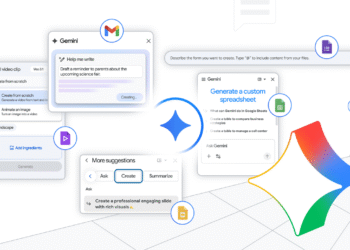Let’s start with what we need to get right foundationally.
For over 25 years, Google has been a committed partner in Europe, with 30,000 employees, 7 data centers, 13 cloud regions, and 6 subsea cables supporting the region’s digital economy.
We’re all in on ensuring Europe doesn’t just participate in the AI revolution, but helps to lead it.
And Europe has the crucial building blocks to do just that, like a talent pool second to none, world class universities, and a single market that could — in theory — help new innovation scale.
But to build for the future, you need to establish the supportive framework necessary for innovation to thrive.
We can come together to create that.
It’s time to simplify — time to focus on crafting regulation that’s focused, aligned and balanced.
Let’s start with focused.
Regulating in ways that support AI innovation means focusing on the real-world effects of AI.
It looks like filling regulatory gaps instead of developing sweeping rules that choke off beneficial, lower-risk uses of AI.
And it requires us to oversee outputs, not inputs — to manage risks and consequences, not micromanage science.
Good regulation is also aligned.
By applying existing regulations to AI applications and harmonizing international frameworks, we can let model providers develop AI in Europe and offer their latest and best models to European companies and citizens.
Finally, this early on in the course of a new technology, good regulation is balanced.
Regulation should seek to avoid harm, yes, but it should also be designed to nurture the spirit of innovation and to enable AI’s immense potential.
We need to take a hard look at outdated rules that could be slowing us down.
Efforts like harmonizing cybersecurity reporting and the upcoming Digital Omnibus Packages are encouraging steps toward this goal — provided we include meaningful simplifications and account for all sizes of business.
Critically: The European Commission wants your input to shape this agenda — so be sure to share your views by October 14.
It’s so important we get this right because as we outline in our new report with Implement, up to 40% of AI’s innovation potential depends on growing Innovative Digital Businesses here in Europe.
In our conversations with European businesses and entrepreneurs, we hear again and again that aligning rules, streamlining regulations, and reducing administrative burdens would go a long way toward helping them compete on a level playing field globally.
So getting that solid regulatory foundation in place has to be step one.
From there, we can shift to step two: It’s time to build.

















